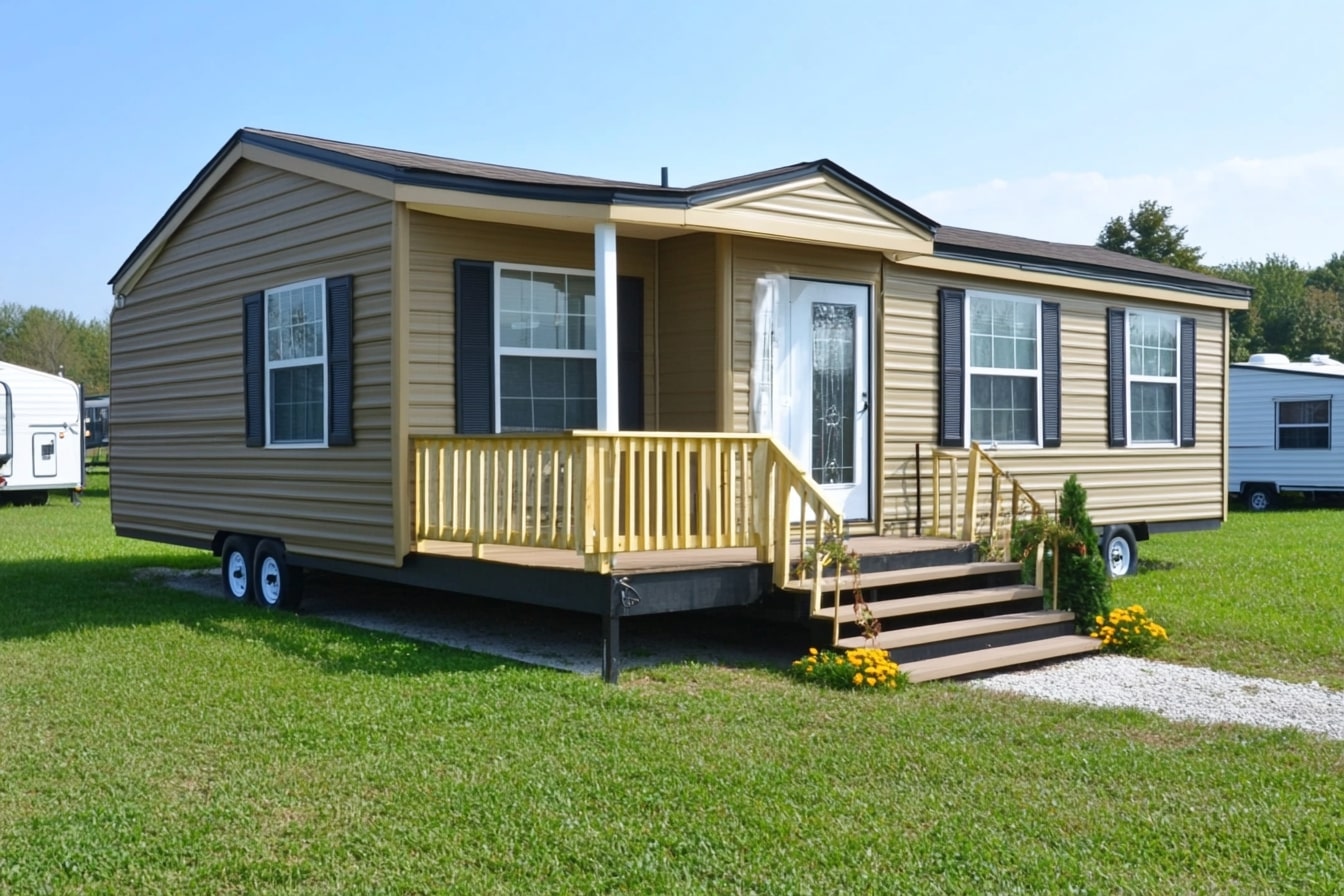Understanding Mobile Homes & Trailers: A Flexible Housing Option
Mobile homes and trailers offer a more flexible and potentially affordable housing option for those exploring alternatives to traditional homes. They may vary in size, design, and amenities, but many people consider them for seasonal living, retirement, or as a first step toward homeownership. Discover more in this article.

What Are Mobile Homes and How Do They Differ From Traditional Houses?
Mobile homes, also known as manufactured homes, are prefabricated structures built in factories and transported to designated locations. Unlike site-built homes, these dwellings are constructed on a permanent chassis with wheels, allowing for potential relocation. Modern manufactured homes must comply with federal HUD codes, ensuring safety and quality standards. They typically range from single-wide units (14-18 feet wide) to double-wide or triple-wide configurations that provide more spacious living areas comparable to traditional homes.
Are Trailers for Living a Viable Long-Term Housing Solution?
Trailers for living have evolved significantly from their basic origins into sophisticated housing options. Today’s residential trailers feature modern amenities including full kitchens, bathrooms, central heating and cooling systems, and contemporary finishes. Many people successfully use trailers as permanent residences, particularly in mobile home parks or on private land. The viability depends on local zoning laws, climate considerations, and personal lifestyle preferences. Some regions have specific regulations governing trailer placement and long-term occupancy.
How Do Mobile Homes Serve as Affordable Housing Alternatives?
Mobile homes present compelling affordable housing alternatives due to their lower initial costs compared to traditional homes. The manufacturing process typically costs less than site-built construction, and buyers often avoid expensive land purchases by renting lot space in mobile home communities. Additionally, property taxes are generally lower since the structure may be classified as personal property rather than real estate. Utility costs can also be reduced due to smaller square footage and energy-efficient construction methods commonly used in modern manufactured homes.
Can Mobile Homes Function Effectively as Seasonal Homes?
Seasonal homes benefit greatly from mobile home flexibility and cost-effectiveness. Many people use manufactured homes as vacation retreats, hunting cabins, or summer residences. The ability to potentially relocate these structures makes them attractive for temporary or rotating seasonal use. Mobile home parks in recreational areas often cater specifically to seasonal residents, offering amenities like pools, recreational facilities, and community activities. Winter preparation and climate considerations are important factors when using mobile homes in areas with extreme weather conditions.
Why Are Mobile Homes Popular Retirement Living Options?
Retirement living options increasingly include mobile homes due to their maintenance simplicity and community atmosphere. Many mobile home parks cater specifically to adults aged 55 and older, creating age-restricted communities with shared interests and activities. The single-level design eliminates stairs, making them accessible for seniors with mobility concerns. Lower maintenance requirements allow retirees to focus on leisure activities rather than home upkeep. Additionally, the equity built in mobile homes can supplement retirement income if relocation becomes necessary.
What Are the Real-World Costs and Market Options?
Mobile home costs vary significantly based on size, features, and location. Understanding current market pricing helps potential buyers make informed decisions about this housing investment.
| Home Type | Size Range | Price Range | Key Features |
|---|---|---|---|
| Single-Wide New | 600-1,300 sq ft | $40,000-$80,000 | Basic amenities, energy efficient |
| Double-Wide New | 1,000-2,300 sq ft | $60,000-$150,000 | Spacious layout, modern appliances |
| Triple-Wide New | 1,800-3,000 sq ft | $100,000-$200,000 | Luxury features, multiple bedrooms |
| Used Single-Wide | 600-1,300 sq ft | $15,000-$45,000 | Varies by age and condition |
| Park Model Trailers | 300-500 sq ft | $50,000-$100,000 | Compact, often seasonal use |
Prices, rates, or cost estimates mentioned in this article are based on the latest available information but may change over time. Independent research is advised before making financial decisions.
Additional costs include lot rental fees ranging from $200-$800 monthly depending on location and amenities, insurance costs typically lower than traditional homeowner’s policies, and potential setup and transportation fees for new purchases. Financing options may differ from conventional mortgages, with some lenders offering specialized manufactured home loans with varying terms and interest rates.
Mobile homes and trailers continue gaining acceptance as legitimate housing alternatives in today’s diverse real estate market. Their combination of affordability, flexibility, and modern amenities makes them suitable for various lifestyles and life stages. While considerations like zoning restrictions, financing differences, and resale values require careful evaluation, many Americans find mobile home living perfectly suits their needs for comfortable, cost-effective housing solutions.




